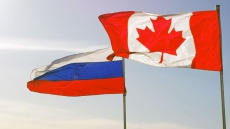The signing of a revised treaty to avoid double taxation may have hogged the limelight during the recent visit of the Indian Minister of External Affairs Sushma Swaraj to Thailand, but the two-day June-end trip also signalled a significant push to Indian cultural promotion and soft power in Southeast Asia.
Barely a week after the organisation of International Yoga Day, the Indian government moved ahead with a concerted effort to promote ayurveda and Sanskrit in Thailand. Also on the agenda was the exchange of Instruments of Ratification of Extradition Treaty, which had followed an earlier visit of India’s naval fleet to Thailand, indicating a deepening of security ties between the two countries.
While India has historically sought to capitalise on being the fountainhead of Buddhism in this highly devout Buddhist country, this visit expanded it to a broader realm. In May 2013, then Indian prime minister Manmohan Singh had gifted a sapling of the original Bodhi Tree from Bodh Gaya to the king of Thailand. The following year, Thailand’s Princess Maha Chakri Sirindhorn visited Bodh Gaya and Nalanda, both places of eminence in the Buddhist pantheon. Both reflected the shared sentiments of Thailand and India on ties based on Buddhism.
However, a significant part of the visit by Sushma Swaraj this time was dedicated to cultural affairs. Besides signing a memorandum of understanding on Nalanda University, another agreement was signed to establish a chair on ayurveda at Rangsit University in Thailand.
Sushma Swaraj also graced the 16th World Sanskrit Conference, and an official Doordarshan team was in place to cover this event. Speaking in Sanskrit, Sushma Swaraj described Sanskrit as “sacred” which sanctifies all that come into its contact.
The minister also visited a key centre of activities relating to India -- the Centre for Bharat Studies at Mahidol University in Bangkok. The centre is known for its academic work on ayurveda, Gandhian satyagraha as well as the Indian diaspora in Southeast Asia.
The minister also met representatives of the Indian community, with separate meetings being held with the “Overseas Friends of BJP” and members of the Vishwa Hindu Parishad of Thailand.
Just a few days ago, three swamijis from the Swaminarayan Akshardham Temple, New Delhi, had met the Indian ambassador in Thailand, and at the World Sanskrit Conference, they presented the ‘Swaminarayan Bhashyam’ which are complete commentaries of Upanishads, Bhagavad Gita and the Brahma Sutras.
Out of the five agreements signed between Thailand and India during Sushma Swaraj's visit, two were on culture, one on extradition and commerce, and one focussed on the Thailand-India Joint Commission for Bilateral Cooperation.
While this was the seventh in a series of joint commissions, it was preceded by a senior official meeting co-chaired by Anil Wadhwa, secretary (east) in the Ministry of External Affairs of India and Vitavas Srivihok, deputy permanent secretary in the Ministry of Foreign Affairs of Thailand.
While the media focus was on the address of the minister to business leaders, Sushma Swaraj said India's ruling NDA government was focussing on the 3Cs - commerce, culture and connectivity. This trip was not just about commerce, but significantly also about culture.





